This is the second in a series of three posts explaining the steps towards the current political crisis in the Democratic Republic of the Congo, examining the electoral changes and consequences, and exploring the political and democratic future of the Central African country.
Heightened tension and violence
The elections in the Democratic Republic of Congo are very important because they come at the end of Kabila’s constitutional mandate as president of the DRC. Given the fact that many presidents in the region (e.g., Burundi, Republic of Congo) have manipulated their countries’ constitutions to extend their mandates, there is fear, especially among the Congolese opposition, that Kabila could become similarly opportunistic and seek a constitutional amendment or other way to extend his mandate. Should he resort to such efforts to remain in office, the country could be plunged into the type of sectarian violence that has followed similar constitutional manipulations by Pierre Nkurunziza in Burundi. Thus, how well the Congolese handle this political imbroglio will have a significant impact on peace and development in the country—and the region—for years to come.
The situation is already becoming precarious: Observers believe that the electoral commission’s (Commission électorale nationale indépendante—CENI) argument for postponement—it needed more time to ensure that all elections-related materials (e.g., ballot boxes) could be safely delivered and update the voter register—could deepen the country’s political crisis and exacerbate violence, especially in the urban centers.
When the CENI petitioned the Cour constitutionnelle (the nation’s highest court), for authority to postpone the elections, the opposition and its supporters responded with protests, which became violent and resulted in the deaths of many people. Some members of the government had indicated that the delay would not last more than a year but the latest timeline, especially considering the decision by the CENI, appears to indicate that the election will not hold until 2018 at the earliest. Human Rights Watch has indicated that at least 44 people were killed during the two-day unrest. The government admits that 32 people were killed in Kinshasa, but went on to say that most of them were looters and not individuals demonstrating for political change.
The complexities of the law in the DRC
The court ruled that President Kabila could stay in power if the country fails to hold elections in November 2016 to determine his successor. The important question to ask though, is: Why did the court not allow the President of the Senate to serve as temporary head of state as mandated by Art. 75 of the constitution, which states that “[i]n the case of a vacancy, as a result of death, resignation, or any cause of permanent incapacitation, the functions of the President of the Republic, . . . are temporarily discharged by the President of the Senate”? Obviously, it would not be a stretch to argue that, having completed his constitutionally mandated two five-year terms, Kabila is permanently barred from remaining in that position or competing for it—a president who is limited by the constitution from continuing in office can be considered to be permanently incapacitated and hence this provision should govern the transition problem in the country today.
Instead, the court relied on Art. 70 of the constitution, which states that “[a]t the end of his term, the President stays in office until the President-Elect effectively assumes his functions.” Article 70 does not say that the incumbent president should remain in office until elections are held to determine his successor; instead, it says that the incumbent should stay in office “until the President-Elect” has had a chance to take over the duties of the presidency. Thus, Art. 70, which presupposes the existence of a “President-Elect,” does not apply to the situation as it currently exists in the DRC today. There is no President-Elect and hence, the more appropriate section of the constitution to govern the situation in the country should be Art. 75 and the President of the Senate should take over as interim president when Kabila’s term expires.
Many Congolese were horrified by the Cour constitutionnelle’s ruling. And many of Kabila’s supporters now favor a constitutional amendment similar to that which occurred in Cameroon in 2008 and effectively eliminated presidential term limits. Many observers believe that if Kabila attempts to amend the constitution, the type of violence that ravaged Burundi after its president, Pierre Nkurunziza, engaged in similar behavior, could befall the DRC.
The country and the region are clearly divided: The agreement produced by the African Union-supported national dialogue earlier this fall demonstrated a regional and somewhat-national acceptance of the elections’ delay. The agreement, which has brought a minor opposition leader, Samy Badibanga, to the post of prime minister, however, is considered by many Congolese, especially those in the opposition, as less than fully inclusive and “national.” The main opposition party, Rassemblement, boycotted the dialogue, stating that the “summit was a syndicate of dictators who feel a need to stick together.” Then again, United Nations Secretary-General Ban Ki-moon praised the agreement, releasing a statement saying, that “the implementation of the agreement will contribute to a more conducive climate for the respect of fundamental rights and freedoms essential to political debate and credible elections.”
The more appropriate route for the DRC to take, particularly one that would minimize sectarian violence and enhance the deepening of its democracy, including the strengthening of its electoral system, is for (i) Kabila to retire as scheduled at midnight December 19, 2016 and (ii) hand over the apparatus of government to the President of the Senate (Léon Kengo wa Dondo, a member of the now defunct Mouvement populaire de la Révolution—MPR) as mandated by the constitution. The interim government would then make the necessary arrangements to carry out the elections to select the country’s next president. However, recent events hint that this outcome is unlikely and that the DRC faces a long, precarious road to 2018.
The Brookings Institution is committed to quality, independence, and impact.
We are supported by a diverse array of funders. In line with our values and policies, each Brookings publication represents the sole views of its author(s).
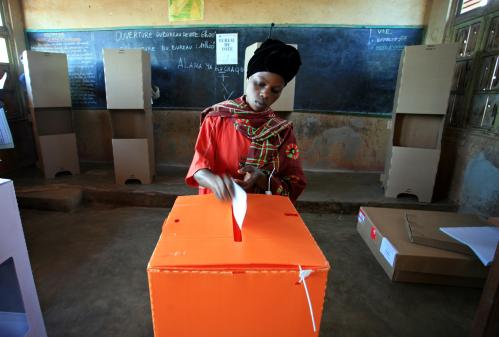
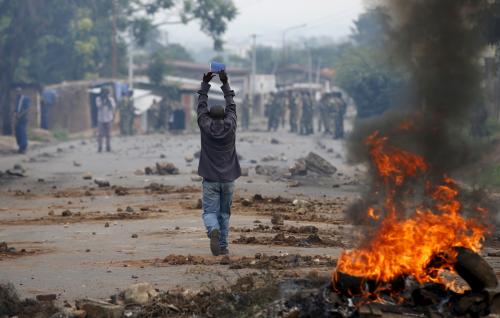
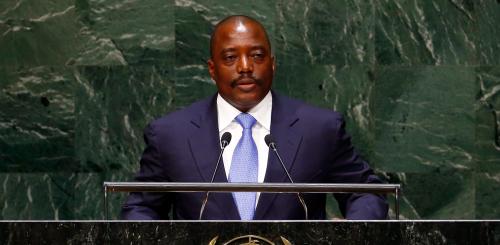

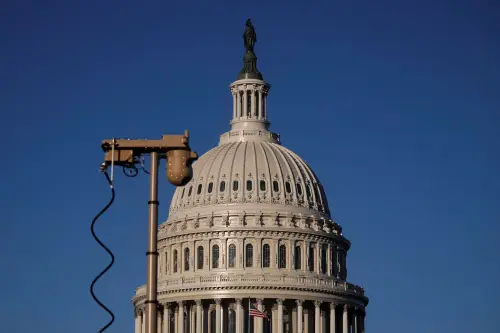
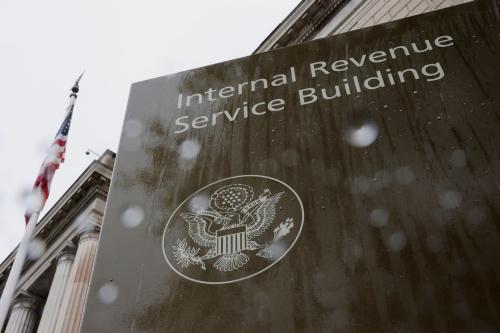
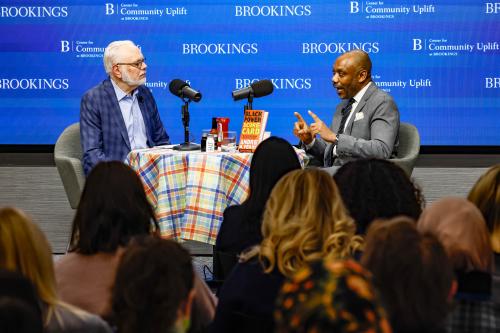
Commentary
The postponed DRC elections: What does the DRC’s situation look like now?
November 22, 2016